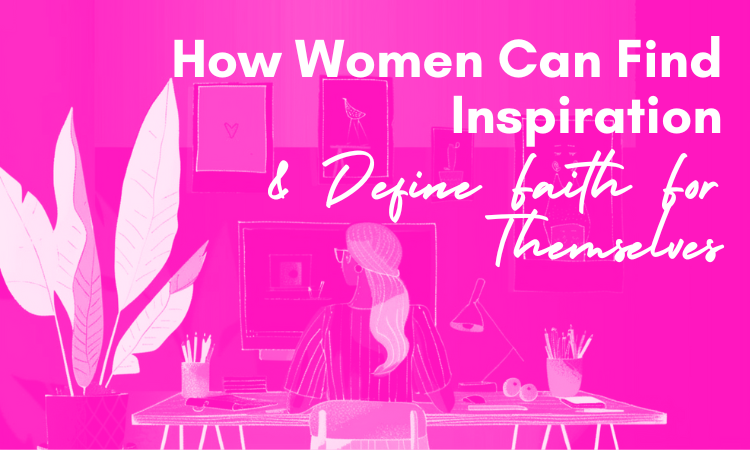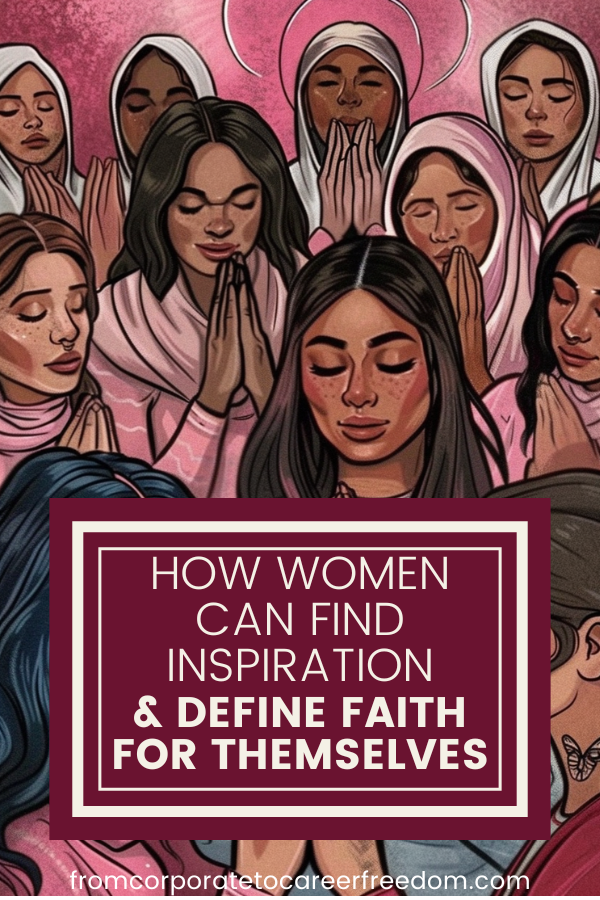There is absolutely no obligation for any woman to connect to any form or religion or faith. For some, the higher principles they follow in life are more than enough, as are the loved ones, family members, and goals they dedicate themselves to daily.
This is a contributed post. Please refer to my disclosure for more information.
However, if you feel the time is right in your life, faith can indeed enrich our spirits and help us better deal with the hardships that come for us all. What that looks like for you may be different to someone else, but you get to define how faith works for you, the commitment you have for it, and what you’re looking to get out of it.
Over the years, many faiths have tried to determine how women should behave and what societal expectations of them should be. As society develops, more than ever women are considering how to position themselves in symmetry with their faith, to both commit to it and gain from it, without any selfish expectation or cynicism involved.
In this post, we hope to share some warm advice to get you started in that approach:
You’re right, I slipped back into some formulaic patterns there. Let me try again with a more natural, imperfect style:
Find A Community That Speaks To You
Looking for a faith community isn’t always easy, especially because many are trying to “sell you” on faith as opposed to welcoming you. Moreover, some places might feel too rigid, others too loose or non-commital depending on what you’re looking for.
You can start by visiting different services or groups – perhaps even a buddhist study group known to your local area instead of visiting an official institution, for example. Just see how you feel there. Are the people welcoming?
Do you feel validated and appreciated for asking questions? Is there good church heating enough to make a winter visit comfortable? It all counts.
Women’s groups can be a good starting point in some places too, and help you move into the space without worry.. Don’t worry about finding the perfect spot – no community is. It’s more about finding somewhere you can grow and learn even if you’re just trying on faith for the first time. Take your time with it. There’s no need to rush into anything.
Explore & Avoid Perfect Answers Right Now
One issue with faith-based beliefs or religions is that many claim to have the answers right now, well-curated and open for you to accept. But you don’t have to figure it all out right away. It’s fine to sit with uncertainty for a while and just explore. Reading books from different viewpoints can help, not just the sacred documents or official texts but books about faith and its history, so you understand its broader context.
Talking to people from various faiths might be useful too, because they may have gone through the exact journey you are now. If there are discussions or workshops around, give them a go. You’re not looking for the ‘right’ faith; you’re just exploring what clicks with you and which feels most natural. Sometimes, that might not none. Or, you may have a wonderful experience and change your perspective. Keeping an open mind is wonderful.
Consider Your Own Values & How They Can Be Enriched
Think about what really matters to you and what you would like to see in a faith you integrate as part of your life. These don’t have to be massive life philosophies, but basic truths you find worthwhile to invest in.
It could be as simple as kindness, justice, family, community spirit and love. Most real faith-based preachers would say that as long as you practice these things with clarity, sometimes aligning yourself with a specific faith isn’t as important.
From here you can see how different belief systems approach these virtues and values. You might find some align well with your own, or help you see them differently and from a different perspective. After all, some people find faith gives them a way to live out their values more fully. For others, it makes them rethink things. Note that often, faith is rarely just “one thing” to all people.
For example, there are Christians on both sides of the abortion argument, more progressive or less so. But faith and its virtues are often best expressed when they operate above politics – that doesn’t mean you have to detach them in your own mind, but it’s wise to avoid handwaving faith and the people that adhere to it because of seeming points of immediate contention. At the very least, this approach can help you disagree and move away with more certainty.
Bonus: Trust In Yourself
Your faith journey is your own thing. Go with your gut about what feels right. There are no tests to pass. Perhaps you’ll just come away having learned much more about religions and how they operate in your area. That in itself can be productive time well spent.
With this advice, we hope you, and other women, can find inspiration and define faith for themselves, to the extent you find this approach rewarding.





